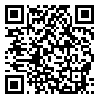BibTeX | RIS | EndNote | Medlars | ProCite | Reference Manager | RefWorks
Send citation to:
URL: http://irj.uswr.ac.ir/article-1-280-fa.html
Hypertonicity is the most common type of cerebral palsy consists of 85% of the affected children. It has a very complex nature making intervention and management very difficult. This article tries to make reader familiar with various types of intervention and introduce a new intervention process to help clinicians decide better. Literature was reviewed with two criteria including: identifying various interventions and their effects on upper limb hypertonicity and level ofinvasiveness of each intervention. This paper suggested a new way of looking at hypertonicitybased on its two components (i.e., neural and biomechanical) and effectiveness of each intervention on these components. In the treatment and management of hypertonicity, clinicians are required tolook at all aspects of hypertonicity and then based on the provided decision tree, decide which kind of treatment to be used for the child.
دریافت: 1392/4/16 | پذیرش: 1392/6/5 | انتشار: 1392/7/9



